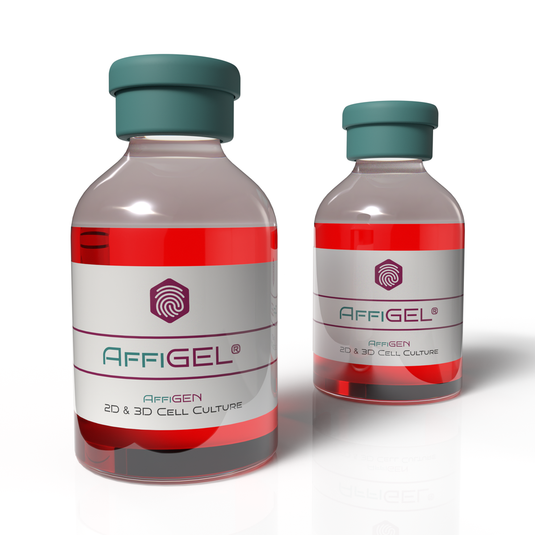AffiGEL® Matrix LDEV-Free
- Equivalent: 356234 | Corning® Matrigel® Basement Membrane Matrix, LDEV-free
- Matrix type: Basic concentration (8-12 mg/ml)
- Application: Adapt to 2D and 3D culture, invasion, and migration experiments, and can also be used for in vivo tumorigenic experiments.
Product Information
AffiGEL® Matrix LDEV-Free is a solubilized basement membrane preparation extracted from the Engelbreth-Holm-Swarm (EHS) mouse sarcoma, a tumor rich in extracellular matrix (ECM) proteins, including Laminin (a major component), Collagen IV, heparan sulfate proteoglycans, entactin/nidogen, and a number of growth factors.
Quality
- Mouse colonies are routinely screened for pathogens via Mouse Antibody Production (MAP) testing.
- Extensive PCR testing is performed to screen for a number of pathogens, including LDEV, to ensure strict control of raw materials used during the manufacturing process.
- Tested and found negative for bacteria, fungi, and mycoplasmaProtein concentrations are determined by Lowry method.
- Endotoxin units are measured by Limulus Amoebocyte Lysate assay.
- AffiGEL® Matrix Gel stability is tested for a period of 14 days at 37°C.
- Biological activity is determined for each lot using a neurite outgrowth assay. Chick dorsal root ganglia are plated on a 1.0mm layer of AffiGEL® Matrix Gel and must generate positive neurite outgrowth response after 48 hours without addition of nerve growth factor.
Source
Engelbreth-Holm-Swarm Mouse Tumor
Preparation and Storage
Store at -20°C. Avoid multiple freeze-thaws. Do not store in frost-free freezer. KEEP FROZEN.
Application
- Cell Growth and Differentiation
- Metabolism/Toxicology Studies
- Invasion Assaysin vitro and in vivo Angiogenesis Assaysin vivo Angiogenesis Studies and Augmentation of Tumors in Immunosuppressed Mice

